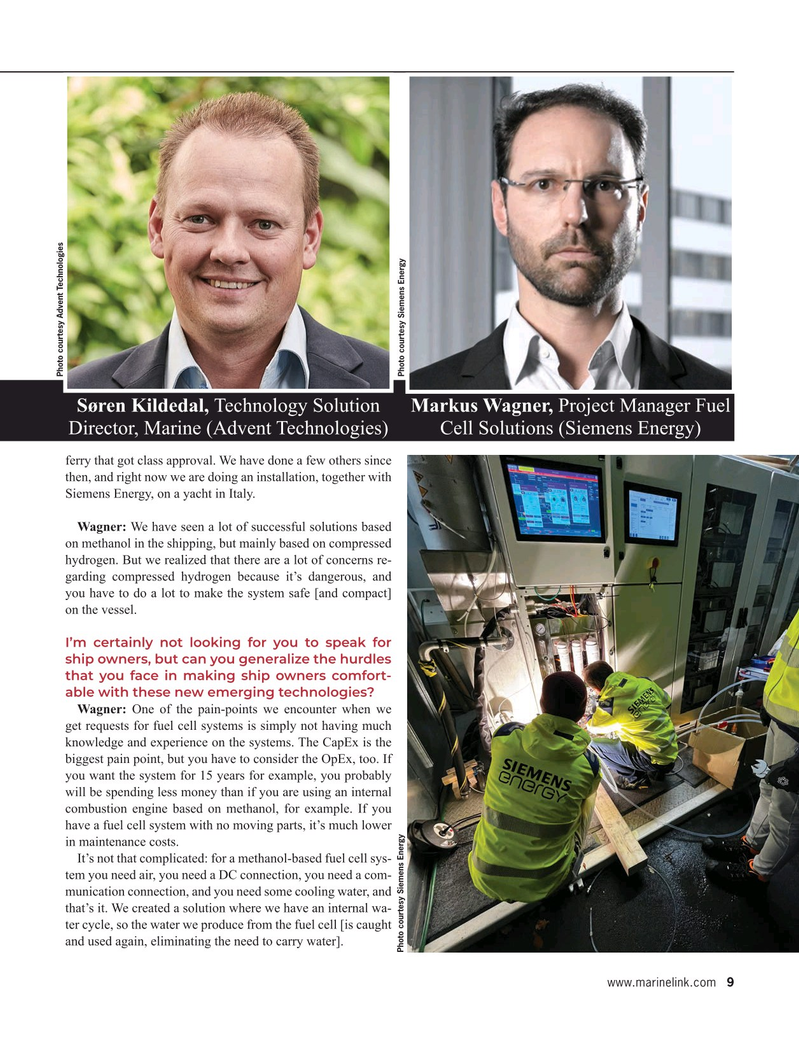
Page 9: of Maritime Reporter Magazine (January 2024)
Read this page in Pdf, Flash or Html5 edition of January 2024 Maritime Reporter Magazine
Photo courtesy Advent Technologies
Søren Kildedal, Technology Solution Markus Wagner, Project Manager Fuel
Director, Marine (Advent Technologies) Cell Solutions (Siemens Energy) ferry that got class approval. We have done a few others since then, and right now we are doing an installation, together with
Siemens Energy, on a yacht in Italy.
Wagner: We have seen a lot of successful solutions based on methanol in the shipping, but mainly based on compressed hydrogen. But we realized that there are a lot of concerns re- garding compressed hydrogen because it’s dangerous, and you have to do a lot to make the system safe [and compact] on the vessel.
I’m certainly not looking for you to speak for ship owners, but can you generalize the hurdles that you face in making ship owners comfort- able with these new emerging technologies?
Wagner: One of the pain-points we encounter when we get requests for fuel cell systems is simply not having much knowledge and experience on the systems. The CapEx is the biggest pain point, but you have to consider the OpEx, too. If you want the system for 15 years for example, you probably will be spending less money than if you are using an internal combustion engine based on methanol, for example. If you have a fuel cell system with no moving parts, it’s much lower in maintenance costs.
It’s not that complicated: for a methanol-based fuel cell sys- tem you need air, you need a DC connection, you need a com- munication connection, and you need some cooling water, and that’s it. We created a solution where we have an internal wa- ter cycle, so the water we produce from the fuel cell [is caught and used again, eliminating the need to carry water].
Photo courtesy Siemens Energy Photo courtesy Siemens Energy www.marinelink.com 9
MR #1 (1-17).indd 9 1/8/2024 5:32:30 PM

 8
8

 10
10
